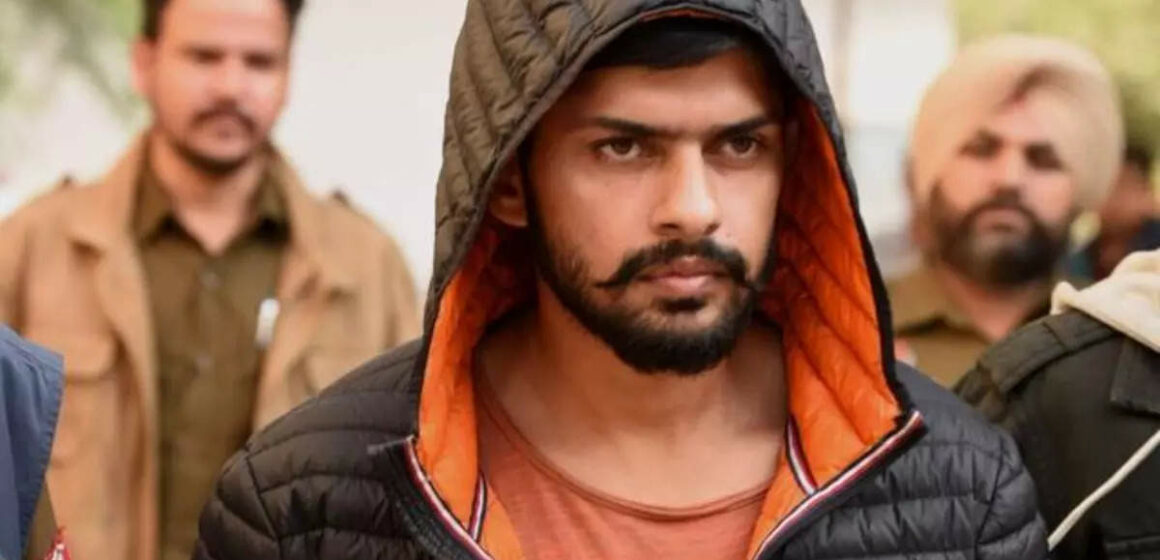The diplomatic relationship between India and Canada has reached a critical point following allegations by Canadian officials implicating Indian government agents in the killing of Khalistan separatist Hardeep Singh Nijjar. In response, India has denied these claims and renewed its call for Canada to arrest members of the Lawrence Bishnoi gang, a notorious criminal organization with links to both countries. This dispute, unfolding against the backdrop of longstanding economic ties, has raised questions about the future of India-Canada relations.
India’s Call for Action on Lawrence Bishnoi Gang
India has repeatedly urged Canada to act against members of the Lawrence Bishnoi gang, who are believed to be involved in various criminal activities spanning across borders. Lawrence Bishnoi, currently imprisoned in Ahmedabad’s Sabarmati Central Jail, is known for his influence in organized crime circles. Indian authorities have accused the gang of running illegal operations in Canada, including money laundering and other illicit activities.
Indian officials have expressed frustration over Canada’s inaction, claiming that the lack of cooperation has hindered efforts to combat organized crime. The Indian government asserts that addressing this issue is crucial not only for India’s security but also for fostering trust between the two nations. By highlighting the need for Canada to apprehend gang members, India aims to shift the narrative and draw attention to the threats posed by transnational criminal networks.
Canada’s Allegations and India’s Firm Denial
The diplomatic crisis deepened when Canada alleged that Indian government agents collaborated with the Lawrence Bishnoi gang in the murder of Hardeep Singh Nijjar, a prominent figure in the Khalistan separatist movement. These allegations have been strongly denied by India, which has described them as baseless and lacking evidence. According to Indian officials, the accusations are an attempt to divert attention from the security challenges posed by the Bishnoi gang and similar criminal elements.
In response, India has taken diplomatic measures, including the withdrawal of several diplomats from Canada. The move highlights the severity of the dispute and signals India’s unwillingness to accept what it sees as unfounded claims. The Indian government has also emphasized the importance of addressing organized crime in Canada, portraying its requests as efforts to ensure regional stability and mutual cooperation.
Understanding the Lawrence Bishnoi Gang’s Role
The Lawrence Bishnoi gang is known for its extensive criminal activities in India, including extortion, contract killings, and involvement in high-profile crimes such as the recent murder of Maharashtra politician Baba Siddiqui. Despite being in custody in India, Bishnoi’s influence reportedly extends beyond borders, with associates operating in Canada and other countries.
For years, Indian authorities have sought international cooperation to dismantle the gang’s networks and mitigate its influence. The Indian government’s recent statements underscore the need for Canada to take a more proactive stance in addressing these criminal elements. By calling for the arrest of Bishnoi’s associates, India aims to draw a line between addressing legitimate security threats and navigating diplomatic accusations.
Economic Relations: A Key Consideration Amid Tensions
Despite the escalating political tensions, India has been careful to underscore the value of its economic relationship with Canada. Bilateral trade between the two countries has grown significantly in recent years, covering areas such as technology, energy, education, and more. With Canada being a popular destination for Indian students and professionals, maintaining economic stability remains a priority for both sides.
Indian officials have stressed that their focus on the Lawrence Bishnoi gang should not be seen as an attempt to undermine economic ties. Instead, they argue that addressing security concerns is essential to fostering a stable environment for trade and investment. This approach reflects a broader strategy to separate economic discussions from political disputes, emphasizing the importance of practical cooperation between India and Canada.
Impact on India-Canada Diplomatic Relations
The ongoing diplomatic standoff has put the traditionally positive relationship between India and Canada to the test. The exchange of accusations has cast a shadow over other avenues of cooperation, including trade negotiations and cultural exchanges. Observers note that while the dispute has caused significant strain, there remains potential for dialogue and resolution if both sides are willing to engage constructively.


Leave a Reply